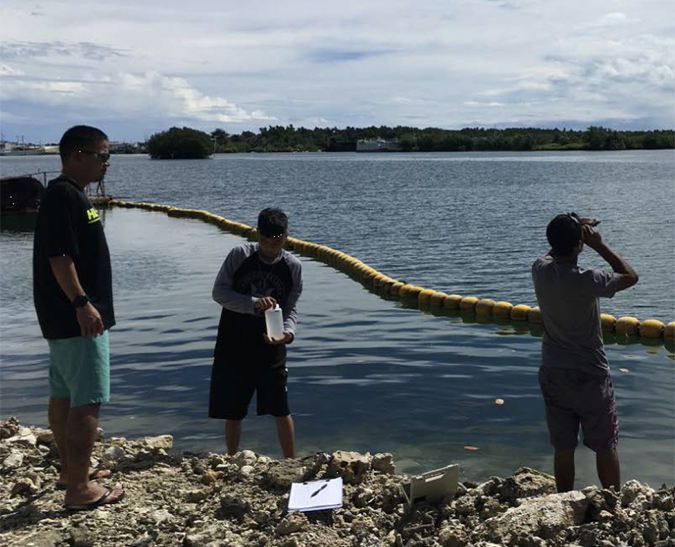Water Quality in the face of Climate Change: Establishing a baseline in Pohnpei, Federated States of Micronesia

On the island state of Pohnpei, rising sea levels and predicted increased precipitation caused by climate change threaten to increase sewage pollution in nearshore waters. Flooded cesspools, the primary domestic wastewater systems in Pohnpei, have the potential to affect coastal water quality. The objective of this research was to assess water quality in populated and forested areas, identify potential sewage pollution hotspots, and provide baseline data for marine coastal waters. From July 2018 to August 2019, thirty-one stations were sampled around Pohnpei’s coastline, including populated and forested areas. A previously established multi-indicator approach was used to assess water quality and identify sewage pollution hotspots. Water and macroalgae samples were collected from shoreline and offshore stations for analyses of fecal indicator bacteria (FIB) (Enterococcus spp.), nutrients (NH4+, NO3–+NO2–, PO43-, and H4SiO4), and stable nitrogen isotopes (δ15N) of macroalgae and nitrate nutrients. Physiochemical parameters (turbidity, salinity, and temperature) of the water were also measured. Results showed differences in FIB, nutrients, and δ15N among stations and between populated and forested areas. This research is the first to study the nutrient concentration in coastal waters of Pohnpei. Results provide a new approach to identify sewage hotspots along the island’s shoreline by scoring values of FIB, δ15N, and nutrients concentration. This information will help predict changes in water quality that may be caused by future climate change.
PROJECT DETAILS
FUNDED:
FY2019
PI:
Tracy Wiegner
Assoc. Professor of Marine Science
UH Hilo
Graduate Scholar:
Bryan Tonga
Tropical Conservation Biology & Environmental Science
UH Hilo

